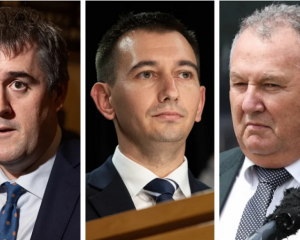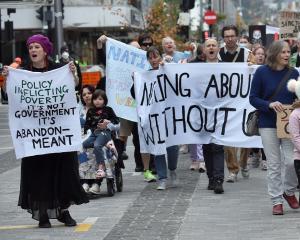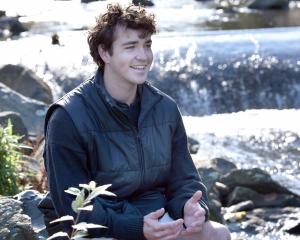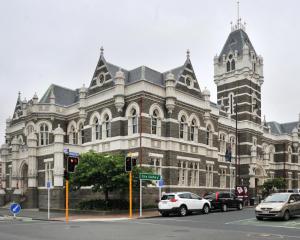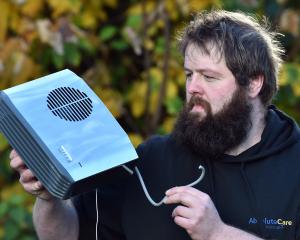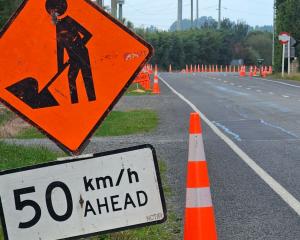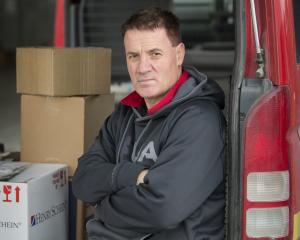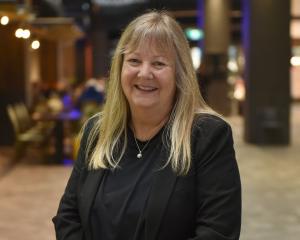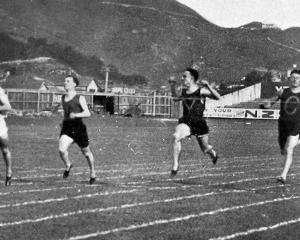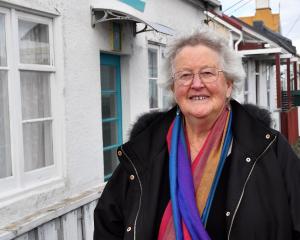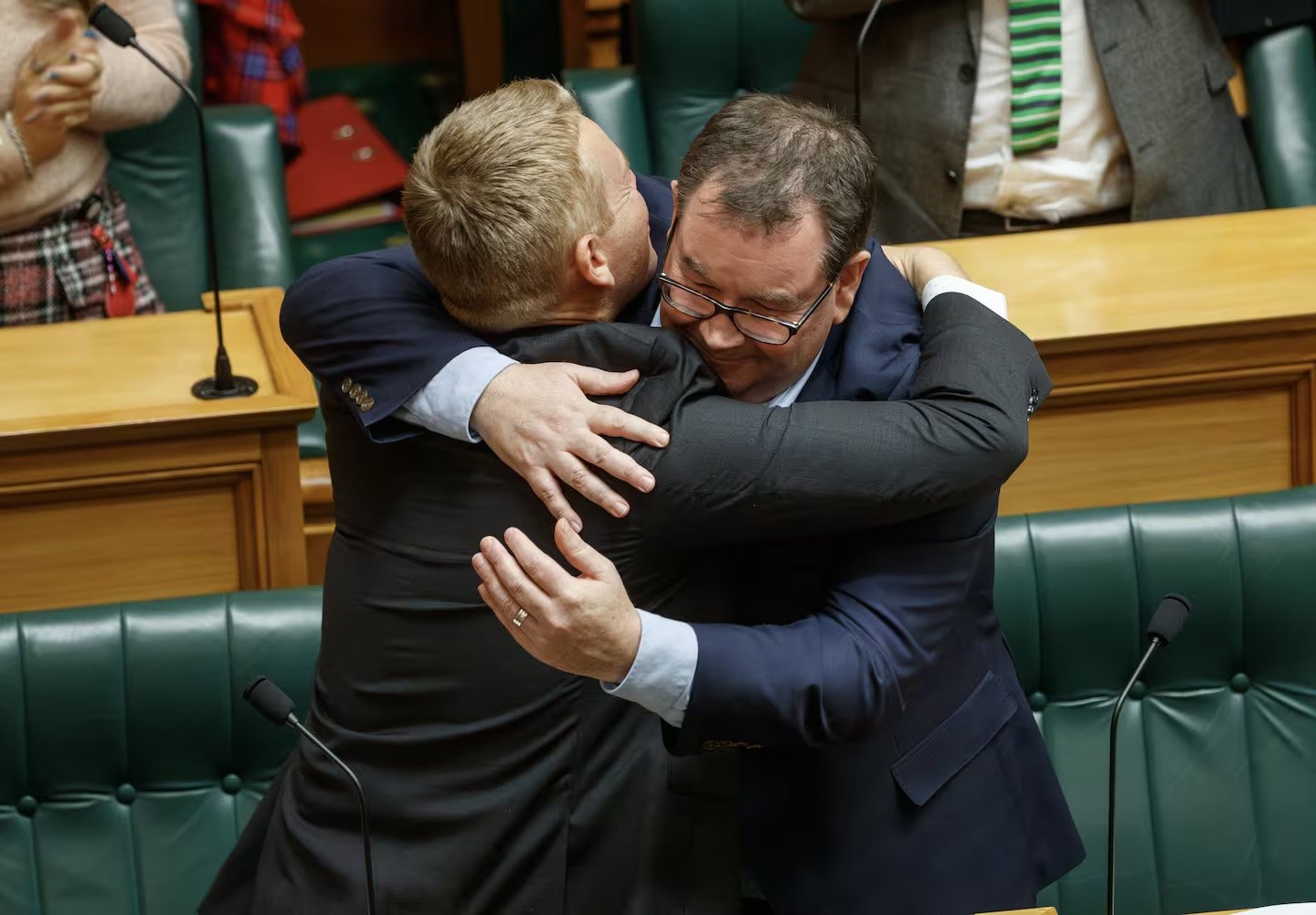
As he sits surrounded by cardboard boxes and books, Grant Robertson is clearly on his way out of Parliament.
But not just yet, despite Wikipedia already describing him as an ex-MP: there are still a few hours before Mr Robertson will give his valedictory speech.
He laughs at that news, obviously being well acquainted with false descriptions of himself on the internet.
"I think probably next week, when I won’t be coming in here, I think that is when it will really sink in that it is the end of an era."
Although Mr Robertson’s career as an MP has not been as long as some, he packed a huge amount into his 15-plus years. Twice a failed aspirant to be leader of his party, he put those disappointments behind him to be the invaluable back-up to former prime minister Jacinda Ardern and have control of the country’s purse strings as finance minister during some of the most turbulent times in the country’s history — a volcanic eruption, a pandemic and a shocking terrorist act.
"I didn’t come into politics to be the leader of the Labour Party, so when I lost the leadership election in 2014 I decided to put that out of my mind and it was actually quite liberating in many ways," Mr Robertson said.
"Jacinda popped up a couple of years later and to me she is, clearly, one of the greatest prime ministers New Zealand has ever had. The fact that she was also my friend and that I got to sit alongside her during her time was an extraordinary privilege."
Every so often during those whirlwind times Mr Robertson got to stop and reflect on watching history being made — he tells a story about deliberately lurking at the back of the Beehive theatrette during one of Ms Ardern’s Covid press conferences knowing that he was seeing something unfold that would be repeated in books for decades to come.
"Writing a valedictory and doing these interviews I find myself remembering things and going ‘oh yeah, that happened as well’," Mr Robertson chuckles reflectively.
"That probably says a lot about what was crammed into those six years. It felt like a lot longer for a lot of people, for good or for bad, and I think that is because of the intensity of what we were having to deal with.
"As each thing happened you would think ‘soon we will be able to get back to normal’ but it never got back to normal."
Normality and politics are seldom compatible: Mr Robertson said the role had no job description — "that might perhaps be a good thing" — so each MP got to define that themselves.
For Mr Robertson, former King’s High School pupil and Otago Students Association president, that drafting began in 2008 when elected to the first of his five terms as the MP for Wellington Central.
"When I decided to become an MP I knew it wasn’t going to be forever — I knew I wanted to do it, but I knew it was a very all-consuming job and I was already with [partner] Alf and wanted to keep some semblance of work-life balance.
"I didn’t have a time line but I knew I wanted to be an MP and that I wanted to be in government — that took a little longer than I had hoped — but it is a refreshing thing to be thinking about the new role at Otago. I’m ready to do something there."
Mr Robertson, a life-long sports tragic who demanded the sport and recreation portfolio as well when he became finance minister, met his life partner Alf Kaiwai who was playing No 8 for the Krazy Knights rugby team: Kaiwai was the halfback.
While Mr Robertson has never not been front and centre on rainbow issues, they were also never a dominating aspect of his political career. That is not to say that his presence in Parliament was not hugely important for that community though: on his last day rainbow ribbons, his photograph and a heartfelt message of thanks were pinned to the wall outside the Labour Party parliamentary offices.
"For me it is just about being who I am — I said that in my maiden speech," Mr Robertson said.
"I am proud and comfortable with who I am, it’s not a thing for me, but I also made sure to take every opportunity I could to support causes for the rainbow community and as much as anything to make sure people knew that there were role models. I looked to those people when I was younger and it was important to me to be that kind of person."
That maiden speech was an ambitious statement of how Mr Robertson wanted to battle child poverty and improve access to education — big problems which pre-dated him and which will bedevil MPs for generations to come.
"There is a bit near the end where I talk about how I wanted to make things better, fairer and more equal while I was here and I think I achieved that. But is the journey over on those issues? No, it’s not."
One way Mr Robertson tried to address those inequities was through creating "Wellbeing Budgets", documents which reimagined the government’s balance sheet in terms of whether expenditure of taxpayer’s money was improving people’s lives rather than if it was improving the balance of payments deficit.
That is one piece of work which Mr Robertson very much hope remains in place, despite the new government scrapping many of his policies, a bonfire which he philosophically says "is politics".
"I really don’t want it to be seen as just a Labour thing or just a Grant thing," he said.
"Treasury’s work on the living standards framework pre-dated me and was done under Bill English’s stewardship. There is an opportunity for people of all political shades to use a wellbeing framework: essentially what it is about is trying to look across issues rather than into silos, and trying to look inter-generationally about the kind of things you invest in.
"The reports we have in our Budgets now on child poverty, climate change and overall wellbeing are super important. I think Nicola [Finance Minister Nicola Willis] and I might have slightly different names for certain things — she goes back to Bill English’s social investment model — but I genuinely hope that stays."
Mr Robertson said no one of his six Budgets epitomised everything he wanted to achieve, but Budget 2021, in which the value of main benefits were restored back to where they had been before the "Mother of all Budgets" 30 years earlier, was the one which he looked back at with the greatest fondness.
"It was also the Budget where we funded Hillside. There were lots of other things in that Budget too, but Hillside was hugely emblematic for me of what had gone wrong in New Zealand, that hollowing out of manufacturing in places like South Dunedin, and there was an opportunity to create a modern manufacturing environment there."
Now the self-described South Dunedin boy is on his way home, to become vice-chancellor of the University of Otago. While not planning to abandon his values, his focus will be on the university and not national-level politics.
"I’m enormously fond of Wellington and really enjoyed my years as its MP," Mr Robertson said.
"I think when you are an electorate MP you get a very particular experience of life and the number of times we were dealing with an issue for a particular constituent which was symptomatic of a wider issue that needed to resolved, your connections are very strong. I have lived in this community for a long time, leaving is a bit of a wrench, but as you well know Dunedin has always been home."

